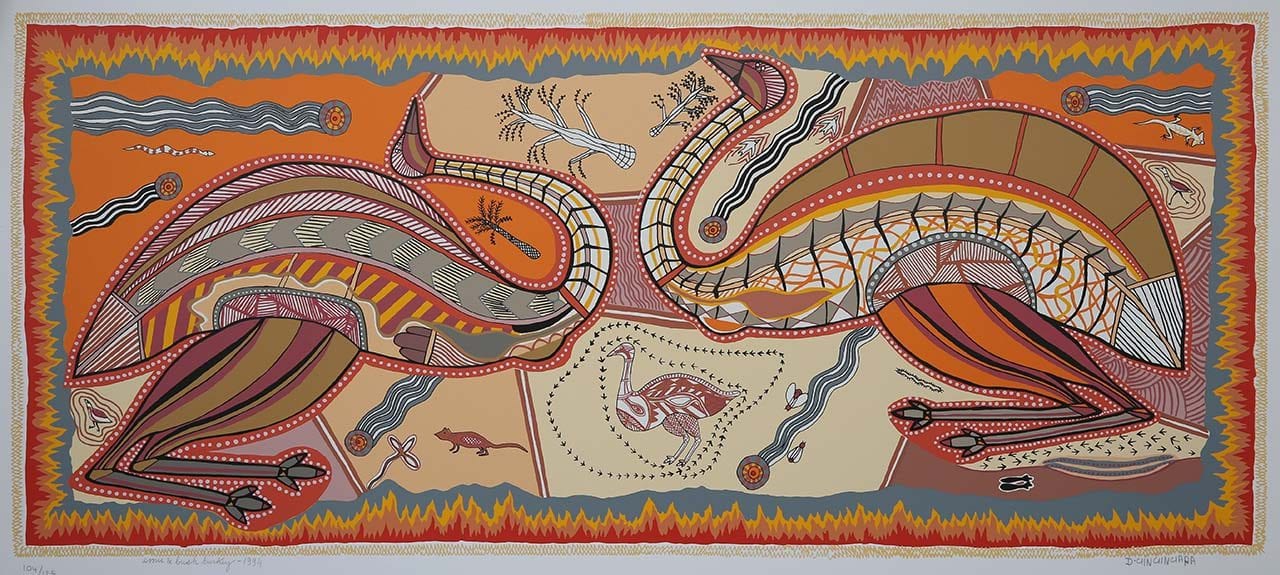The 26th of January is a controversial day in Australians’ calendars. It’s a National day that was chosen based on the arrival of captain Arthur Phillip and his fleet in 1788 to the shores of the Eora Nation, starting a colony and claiming “discovery” of the land. To some, it’s a day to celebrate nationalism and show patriotism over a BBQ and some beers. To others, the significance of this day is deeper than that. It’s a reminder of colonialism, of invasion of the settlement on Aboriginal and Torres Strait Islander’s land that lead to a painful reminder of the mistreatment and violence against indigenous people.
As a Lebanese Australian who has migrated to this beautiful land 12 years ago, it is hard for me to identify with either. However, I choose to celebrate all Australians while paying respect to the people that came before, the traditional owners of the land, the people who respected and used it in sustainable ways. It has been genetically proven through various studies that the Australian Aboriginal population is one of the oldest continuous living cultures in the world. I think that is something to be celebrated and one of the most interesting facts that I like to share with people when asked about Australia. The reason they earned this title is due to their practices and culture, I don’t think they could have done it without respect to the land and sustainably working with it, rather than using it as a finite resource.
A Yuingin [You·in·gin; meaning friend in the Yugara language spoken in the Brisbane area west to Ipswich and the Lockyer Valley, but understood in the Greater Brisbane area of Yugerra] of mine lent me a book last year called Dark Emu by Bruce Pascoe, which blew my mind. Bruce Pascoe unpicks the settler’s diaries and refutes the idea of the belief that Aboriginal culture was a Hunter/Gatherer lifestyle, an idea perpetuated by the settlers created through their rose-coloured superiority lense. He suggests, through their journals and diaries, concepts of agriculture and land management. These glimpses into pre-colonial Australia are vital in understanding true Australian history and proving that indeed Indigenous Australians were the original fishers, farmers, bread makers, scientists and engineers. Pascoe starts by exploring agricultural practices and animal farming. There are references and stories of planting, husbandry, harvesting and storage. References to rainwater capturing systems. Evidence of animal capturing techniques that ensured a meal but did not obstruct migration and ensured continuity of the species were also revealed. There was evidence of storage spaces of food and preservation techniques, which rendered toxic foods edible and prolonged the life of others. Controlled fires within bush areas and agricultural lands for regeneration and management were also evident in the settler’s journals.
Dark Emu is beautifully grouped into sections, from agriculture and aquaculture to housing and controlled burning, all the way to language and law. I won’t spoil it any further because it is a fascinating read and you’ll just find yourself devouring the book, chapter after chapter, with the thirst to erase your preconceived notions about Australian history and Indigineous culture and re-build your knowledge with an undeniable truth that has been hidden for a long time. Before I stop talking about the book though, I would like to share a couple of quotes with you which resonated with me, from chapter seven “The Australian Agricultural Revolution”, as I feel there are two principles by which we should all be living, Continuance and Respect, two values which are at the heart of all sustainability practices.
“The life of the clan was devoted to continuance”
and
“There was an underlying conservatism in this approach, a concern for people they might never meet, and a respect for the prey species embedded in the spiritual and cultural fibre.”
With all the fires, floods and hail storms that have struck our beautiful country recently, destroying our land and ecology, I can’t help but wonder what it would have been like if we still lived in a world where Indigeneous cultures were not only celebrated, but were guiding us on how we use our resources and work with our land.
Today, I’m lifting a SOBAH beer (Australia’s first non-alcoholic craft beer, Aboriginal owned and led) to the people who came before us, the original implementers of sustainable practices, the first farmers, scientists, astronomers, geologists, ecologists and engineers, the Indigineous people of Australia.
Become an ally! Ask, research, make an effort.
Find below some recommendations and links I have discovered on my journey of educating myself and writing this blog.
- To Read:
- To Learn:
- To Drink: Sobah beer
- To Eat: Game Enough
- To Follow: Instagram account supporting Indigenous entrepreneurs and educating the world of instagram @blakbusiness
- To Support:
- Indigineous Literacy Foundation, a national not-for-profit charity focussed on improving literacy levels in very remote Aboriginal and Torres Strait Islander communities. They also publish books by the community in many Aboriginal languages.
- Japinka Aboriginal Art Online Gallery, support aboriginal artists by buying Aboriginal artwork from places such as Japinka Aboriginal Art who are members of the Members of Indigenous Art Code and Aboriginal Art Association of Australia.
- AIATSIS (Australian Institute of Aboriginal and Torres Strait Islander Studies), Support your local communities by getting involved in events and learning about the history.
By: Wassim Sayegh
Picture Credits: Japinka Aboriginal Art Online Gallery Pictures as they appear in the post:


